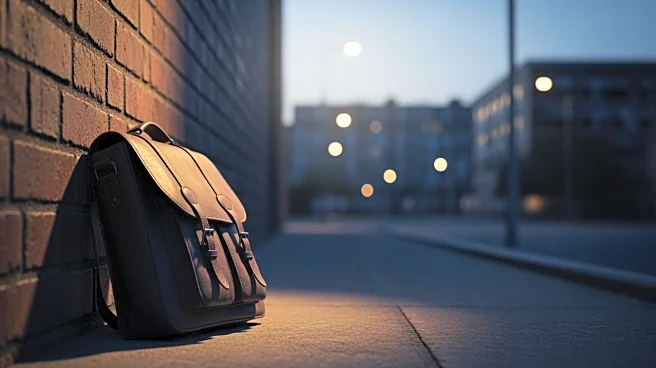What's Happening?
U.S. Senator Ruben Gallego, originally from Chicago, returned to his hometown to address the impact of recent immigration raids conducted under President Trump's Operation Midway Blitz. Gallego, who serves
on the Senate's Committee on Homeland Security and Governmental Affairs, expressed his concerns about the tactics used by U.S. Border Patrol agents in Chicago, particularly in the Little Village neighborhood. He described the operations as resembling urban combat, with agents dressed in battle fatigues and carrying automatic weapons, which he found inappropriate for the area. During his visit, Gallego engaged with local residents and business owners, who shared their experiences of fear and disruption caused by the raids. He emphasized the emotional toll on the community, noting that even American citizens felt threatened by their own government.
Why It's Important?
The immigration raids in Chicago have sparked significant concern among local communities, particularly those with large Latino populations. Senator Gallego's visit and statements highlight the broader implications of aggressive immigration enforcement tactics, which can lead to fear and mistrust among residents. The raids have affected local businesses, with reports of families avoiding public spaces due to fear of encounters with immigration authorities. Gallego's criticism underscores the need for a more humane approach to immigration enforcement that respects the rights and dignity of all individuals, regardless of their immigration status. His involvement also brings national attention to the issue, potentially influencing public policy and encouraging dialogue on immigration reform.
What's Next?
While the immediate presence of Border Patrol agents has subsided, the community remains vigilant, anticipating potential future raids. Senator Gallego's visit may prompt further discussions among lawmakers about the appropriateness of current immigration enforcement strategies. Local leaders and activists are likely to continue advocating for policy changes that protect immigrant communities and prevent racial profiling. Gallego's engagement with the community could lead to increased political pressure on federal agencies to review and modify their tactics. Additionally, his visit may inspire other lawmakers to take similar actions in their own constituencies, fostering a broader movement for immigration reform.
Beyond the Headlines
The situation in Chicago reflects a larger national debate on immigration policy and enforcement. The tactics used in the raids raise ethical questions about the balance between national security and civil liberties. The emotional impact on communities, particularly children, highlights the need for policies that consider the psychological and social effects of enforcement actions. Gallego's criticism of racial profiling and the treatment of American citizens during the raids points to ongoing issues of discrimination and inequality in immigration enforcement. This event may contribute to a shift in public perception, encouraging more empathetic and inclusive approaches to immigration policy.












